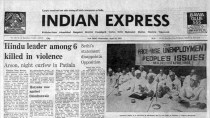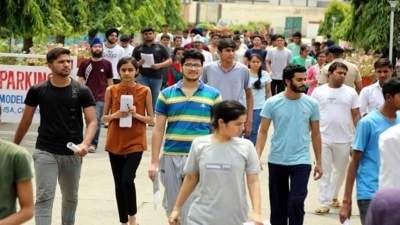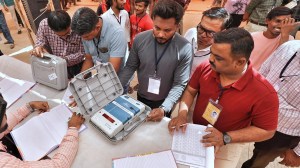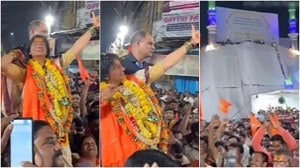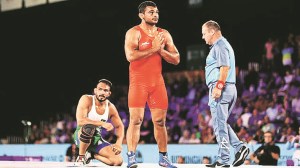- India
- International
Next Door Nepal: The morning after
Post elections, Kathmandu must deal with a hopeful China, confused India.
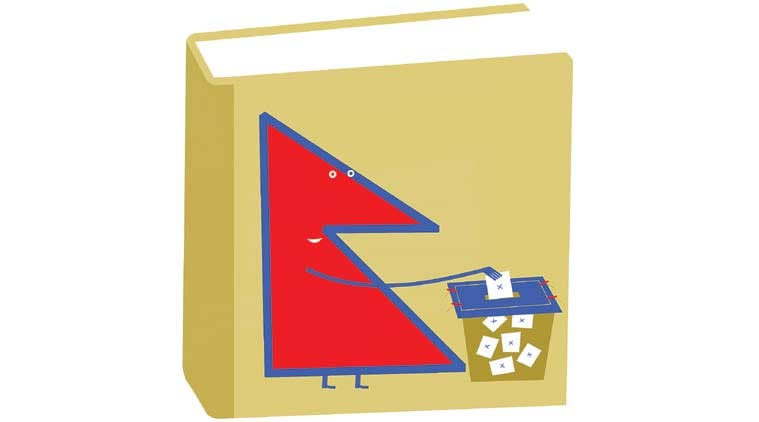 (Illustration: C R Sasikumar)
(Illustration: C R Sasikumar)
In 1985, King Birendra annulled a global tender that China had won to build the Kohalpur-Banbasa road following India’s representation that Chinese involvement in developmental activities along the India border in Nepal will pose a threat to its security. Restoring such a contract to a loser in a global bidding was unthinkable, but Nepal’s unwritten policy on the neighbourhood then was to favour India if the interests of India and China directly clashed. Three years later, Rajiv Gandhi and King Birendra fell out, and India imposed an economic blockade for 18 months after Nepal imported some weapons from China.
Early 1990, Nepal’s political parties in the underground, mainly the Nepali Congress and the Communist groups, came together to launch a movement for democracy, an initiative that had direct support from India’s major political parties except the BJP, under an initiative from Chandra Shekhar. In between the blockade and the movement for democracy, India’s then foreign secretary, S.K. Singh had put up a proposal before the king that if he was willing to have Nepal under India’s security umbrella and give India priority rights over Nepal’s water resources, India may continue to support the monarchy. Birendra’s response this time was different. He said he would not do anything that went against the interests of Nepal and the Nepalese. He turned down India’s proposal.
Simultaneously, he sent a delegation of some trusted government officials to China to explore if the northern neighbour could help him in the event of an Indian blockade, especially by supplying petroleum products. “The Chinese felt sad over the situation in Nepal, supplied 10,000 litres of low octane fuel as a token of respect to the king, but advised us to keep India in good humour,” recalls one of the delegates. He also added that the “Chinese said they are not in a position to substitute India at least for the next 30 years”. King Birendra tried to mend fences with India.
China’s wise advise to Nepal during ups and downs in its relations with India has always been the same: “India is important for you, maintain good relations with them.” In 2005, King Gyanendra was treated like an eye-sore by India ostensibly for facilitating China’s entry into the SAARC as an observer although the decision was endorsed unanimously by member countries. However, China did not come to the monarchy’s rescue when it came under attack from the republicans. China maintained its declared policy of non-interference in other country’s internal policy while India supported the republican agenda. China’s silence when the monarchy was being thrown out visibly under the wish of India and Western powers raised the question: Is China more trustworthy than the other neighbour? In fact, noted security and foreign affairs expert Keshav Prasad Bhattarai put this to Chinese experts on Nepal in a closed-door seminar. None from the Chinese side responded. But it is clear that China’s growing clout in the region will be under scrutiny no less.
At the moment, China has reasons to be euphoric about the victory of the Left Alliance. Then prime minister K.P. Oli had secured China’s support during the 2015 blockade, which lasted six months. Oli also made it an electoral issue: He reiterated it almost everywhere he went that while a country’s size may differ, sovereignty meant the same thing for all, big and small.

In its first response after the election results, India welcomed the successful conduct of the poll and congratulated the government and the people of Nepal. It stopped short of mentioning the Left Alliance as a future partner. MEA spokesperson Raveesh Kumar said Thursday that India was looking forward to working with the “democratically elected government” in Nepal. Unless some last minute problems arise in the communist alliance, Oli is certain to take the office of the prime minister. He won the mandate and largely for what he did during the blockade. Throughout his campaign across the country, he repeatedly raised two issues: That India was responsible for the five-month long blockade from September 2015 when Nepal promulgated a constitution that India refused to welcome, but only “took note of”, and that the South visibly played a role in breaking the left coalition he led as prime minister. Following Oli’s resignation, China called off President Xi Jinping’s scheduled visit. Beijing felt the situation was not conducive for President Xi to visit Nepal.
The coming together of the Left parties just before the elections were announced is therefore seen as a massive failure of Indian diplomacy in Nepal. A large section of the Hindutva and monarchist votes this time went to Oli because he is perceived as a nationalist leader. Second, around 700 “mandalis” — organised groups of Christians, mainly converts across the country — voted en block for the left as they believed this alliance will preserve the “secular” component of the constitution and respond positively to their demand for the “right to conversion” as a fundamental right in the constitution, an issue dear also to the European Union. Nepal will now have to deal with an aggressively hopeful China, a confused India and a West with an enlarged agenda.
Meanwhile, domestic actors have already started squabbling, mainly on the issue of formation of the Upper House of Parliament. The open tussle between the president, who is siding with the Left Alliance, and the Nepali Congress-led government that will be in power for at least one more month, over the formation of the first upper house, the national assembly and appointment of governors in seven provinces, has vitiated the political atmosphere and disrupted the harmony visible ahead of the elections. The promised political stability Nepal hoped for already seems a distant dream.
But China is unlike to ask Nepalese actors to listen to India, a key player in Nepal’s domestic politics during the past 11 years. Oli, the PM-in-waiting, has told his close circle that he believes in balanced relations with the neighbours, but his patience should not be tested and limits not defined by outsiders.
40 Years Ago
EXPRESS OPINION
More Explained
Apr 18: Latest News
- 01
- 02
- 03
- 04
- 05











